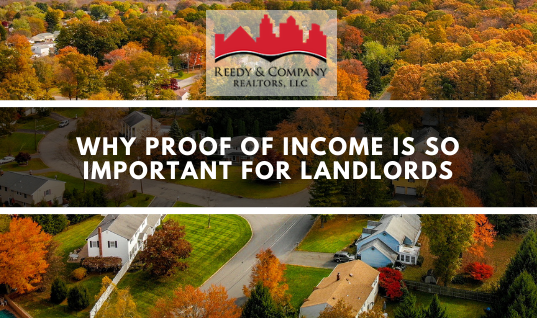No landlord wants to lease to a problem tenant. For that reason, most landlords conduct a thorough screening process to ensure that their tenants will likely not cause them a lot of unnecessary headache.
Part of that screening process involves proof of income. From a purely financial perspective, this is perhaps the single most important item on the landlord’s agenda. After all, as a landlord you want to know that your tenant will have the means to pay rent on a regular basis.
That being said, with so many tenants working within the “gig economy,” or other non-traditional sectors, proof of income may not always be such a straightforward consideration. What are some factors that you should take into account with regards to proof of income?
A Good Rule of Thumb
When it comes to proof of income, a good rule of thumb to apply is the “3x income rule.” In other words, a potential renter’s gross income should exceed the yearly cost of the lease by at least three times.
While there are exceptions to this rule (such as if your prospective tenant has good credit, or has a willing cosigner with a steady income), as a landlord this should be one of the first things you look at to determine if this candidate is right for you.
How to Determine Income from Non-Traditional Sources
Of course, a traditional 9-to-5 office job offers easy proof of income, such as paycheck stubs, bank account statements, etc. However, what if your prospective renter receives his or her income from non-traditional sources? Here are some methods that may help you to determine whether the tenant has a steady wage coming in:
- Ask to see any online wage statements, or invoice pages. For instance, many online-based companies pay via PayPal, or another medium that can provide account statements.
- Ask for employment references. Even if the candidate is being paid in cash, a call to his or her employer can set your mind at ease with regards to stability of income.
- If the potential renter is retired, then you can ask to see Social Security statements, retirement account statements, and/or pension plan documentation.
- If the candidate is a student, or otherwise needs a cosigner on the lease agreement, then ask to see proof of income from the cosigner as well as the student.
If none of these proofs are available, then you may decide to move on to other candidates. Of course, if everything else about the prospective tenant looks good, then you also have the option to take a flyer on him or her – but you’ll do so at your own risk.
The Importance of Proof of Income
When tenants don’t have the means (or the inclination) to pay rent, their landlord takes the hit financially. And even after a landlord has given notice of eviction, there are a ton of potential complications that could arise, should the tenant decide to mount a defense against the eviction. It comes as no surprise that most landlords do their level best to avoid such problems from the outset.
Whether your prospective tenant works a traditional 9-to-5 job, or gets by from gigs or another form of employment, it is vital to establish some kind of proof of income before signing the papers and handing over the key.
At Reedy and Company, we are a full-service property management firm that can help you to effectively screen your tenants. Based in Memphis, TN, we handle all aspects of property management for our clients, thus ensuring a minimum of hassle and maximum profitability. If you’d like to learn more about the services we offer, reach out to us at Reedy and Company today for further information.



